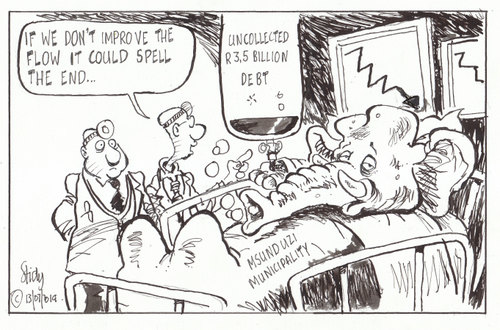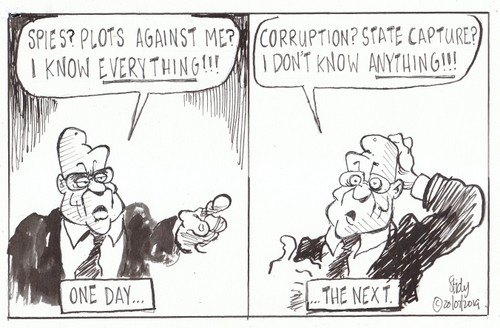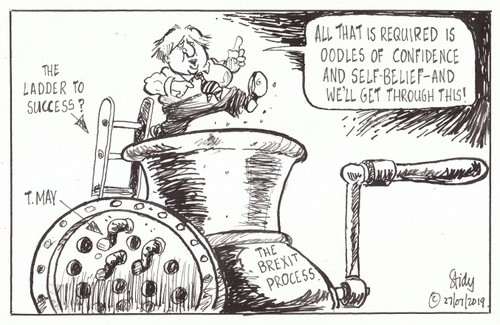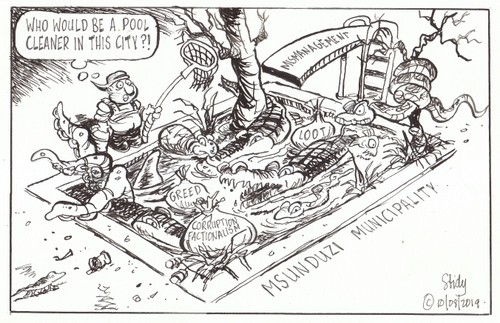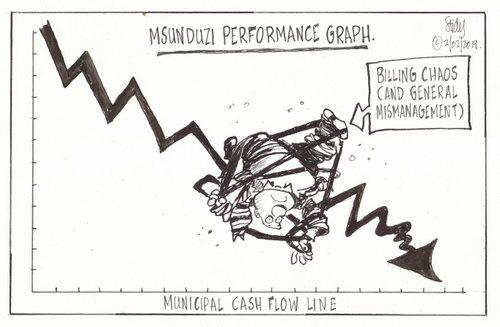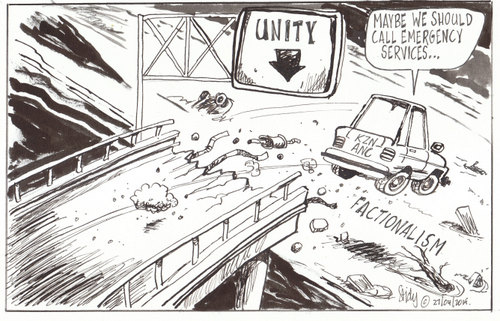
published by MacMillan
Few British prime ministers have generated more scandal and controversy in such a short time as Boris Johnson. Campaigning on a promise to leave the EU with or without a deal he led the Tories to a historic 80-seat majority in Parliament. Having achieved his ultimate goal, his time in Number 10 was to prove tumultuous.
Johnson had earlier shown himself to be a much more attractive, sellable figure than his rather grey predecessor, Theresa May. He possessed charm and charisma in abundance. With his tousled appearance, boisterous humour and unflappable demeanour he became a regular crowd-pleaser despite his habit of playing fast and loose with the truth. Like many a politician, he had an eye for the effective quotation (“Get Brexit Done”) and was always quick to spot a good photo opportunity even if he often came over more as an affable rogue than a serious public figure.
Once in office, however, his fortunes began to change as his running of the country was quickly reduced to a series of crises, mostly of his own making. Previously, Johnson had always displayed a genius for turning potentially hostile events to his personal advantage but as his true political character began to emerge and the blunders mounted up, the act began to wear thin with both the public and many of his fellow party members. It was also his unfortunate lot to assume office just as the full horrors of the Covid pandemic began to hit and his handling of the crisis was initially characterised by a series of crass misjudgements and abrupt U-turns in policy. Although he could later claim justified success for his vaccination programme, he and his team squandered further public trust when it emerged they had breached their own lockdown regulations (like his counterpart across the ocean, Donald Trump, Johnson often acted as if the rules didn’t apply to him). A series of damning media revelations about illegal gatherings for drinks (including one get-together at the time of Prince Phillip’s death) culminated in what became known as “Partygate” and – along with his mishandling of the scandal involving the alleged sexual harasser, Chris Pincher – ultimately precipitated his resignation, leaving his party’s popularity and reputation at a catastrophic all-time low.
Johnson was equally poor in his judgement of people. His choice of the somewhat spooky Dominic Cummings as his chief advisor backfired when the latter left in a huff and then proceeded to release damning information against his erstwhile employer. His misjudged attempts to protect disgraced party members and colleagues further counted against him.
Sebastian Payne, an award-winning Whitehall editor and columnist for the Financial Times appears very well informed on the subject and has obviously had access to many of those who were closely involved with the former prime minister during the dying days of his premiership. While well aware of his subject’s psychological flaws and foibles, he goes out of his way to present a balanced picture of Johnson’s time in office. He makes a reasonably convincing case, for example, that the prime minister displayed true leadership in his handling of the Ukraine crisis and that it was largely due to his efforts that the West could display a united front against Putin’s invasion plans. As the author notes, it was the one occasion when he did come close to emulating his hero Winston Churchill.
For the rest though, it seems mostly to have been a case of Boris being good as Boris but not so good as prime minister. Like Trump again, though, it might be unwise to write him off just yet as he continues to lurk in the background, waiting to stage his comeback…

Published by Struik Travel & Heritage
In the increasingly difficult and troubled times, we live in there is probably no better stress burner than escaping into the wilderness, far from the clamour of civilisation and the burden of load-shedding. Getting into nature soothes and clears the mind, it offers silence and clarity. Many studies have, indeed, proved the beneficial effects of exercise on both physical and mental health but what sets hiking apart is that it is done outdoors and in a natural setting.
In South Africa, we are extremely lucky to not only enjoy a climate that is most conducive to open-air activities but to live in a country that is renowned for its diverse landscapes and magnificent scenery. Whether you are a casual rambler or a serious hiker there is a huge range of options available for everyone, be it the peaks of the Drakensberg, the fynbos-clad Cape, the Limpopo bushveld or the haunting beauty of the dry Karoo.
For those wanting to find out more about just what is on offer, Willie Olivier – an intrepid explorer who has covered thousands of kilometres throughout southern Africa both on foot and by road – is the perfect go-to man. Featuring over 500 trails, including 60 new trails, this fully updated fifth edition of his well-known Hiking Trails of South Africa is a treasure trove of information. As one would expect with such a pro, his book is accessibly written but packed with information and authoritative advice all mouth-wateringly presented. Grouped into broad geographic areas, it provides a brief overview of the flora, fauna, geology, climate and other relevant information, including the length and duration of the hike. Lushly illustrated, it also includes much sensible advice on planning, preparation, nutrition, equipment, first aid and general safety.
